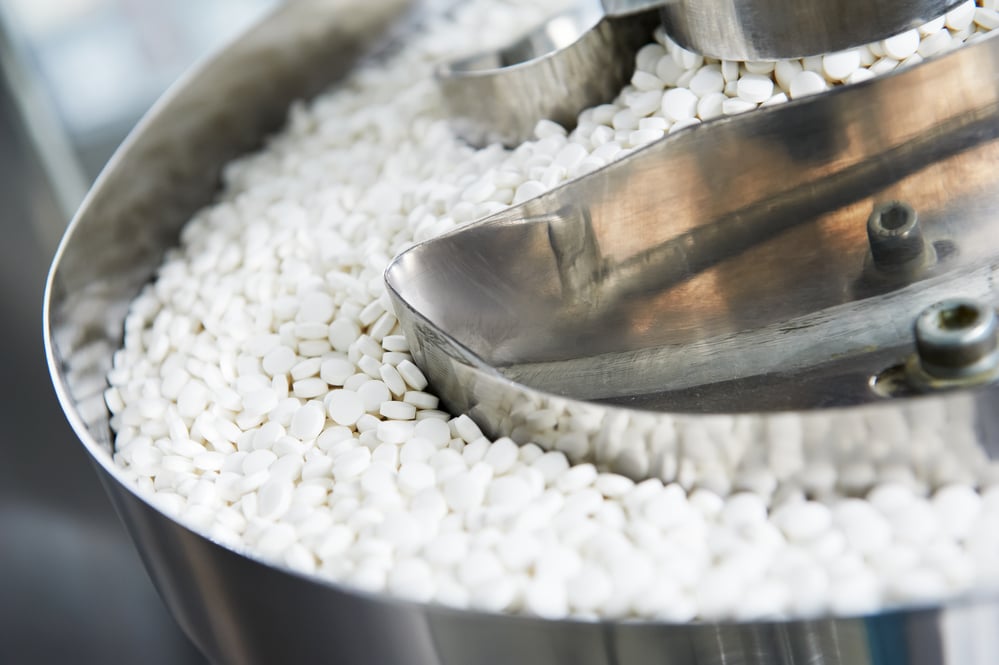
It's easy to forget, especially when we're in the midst of a pandemic, that there are still other diseases out there that need treatment. The grand race to a vaccine, or a therapeutic that will do the job as well, occupies a lot of investor thought these days. A move to pursue autoimmune diseases, meanwhile, recently made its own entrance as
Johnson & Johnson (NYSE:JNJ) agreed to buy
Momenta Pharmaceuticals (NASDAQ:MNTA) for a hefty $6.5 billion.
An Explosive Result
When Johnson & Johnson agrees to buy your company for more money than the entire country of Malawi made in 2017, it's going to do big things to your share price. Do them it did; in after-hours trading, the company's stock price exploded from its previous close of $30.81 to hit a new high of $52.13 in pre-market trading. Not bad for a company who was, at this time last year, aspiring to break the $13 level. Given that the offer price was $52.50, though, there was still clearly some room for gain.
The move also seems to have had a positive effect on Johnson & Johnson, too; its previous close was at $150.09, and in pre-market trading, the company was up to a share price of $150.22. Nowhere near as big a gain percentage-wise, but certainly an upward move.
Johnson & Johnson put down that kind of money to pick up Momenta mainly on the strength of its autoimmune disease-fighting drug portfolio. Johnson & Johnson intends to add that roster to its own lineup through its Janssen unit, and with the acquisition, gains a slate of new potential winners. One of the biggest is nipocalimab, a medication currently being tested for myasthenia gravis, which in turn causes muscle weakness. Nipocalimab is said to be “clinically validated”, which suggests that it could be coming out soon to help those with mysthenia gravis.
Did Johnson & Johnson Get Its Money's Worth?
It's easy to wonder why Johnson & Johnson paid such a premium to pick up Momenta. Johnson & Johnson offered a price nearly double the company's value to get it on board. It's not as though Momenta was a company with substantial earnings; consensus estimates via Zacks noted that the company was expected to post a quarterly loss of $0.42 per share, and that represented a 63.8% improvement over the same time last year. Revenues alone were expected to be $5.84 million for the quarter, which, granted, was up 12.7% over the same time last year.
What's more, the company's value hasn't even always been this high. Looking at the five-year charts, Momenta has struggled to get above $20 per share, and when it has accomplished such a feat, hasn't exactly done so for long. The company did enjoy a brief period where $30 a share looked like a possibility from April 2018 to about September 2018, where a sudden crevasse opened up and sent the company back down to hit $12.45 a share in the space of October 2018. From there, the company struggled to clear $20 a share once more, a feat it wouldn't actually accomplish until December 27, 2019, when it closed at $20.36.
The early days of 2020 proved a hit for pharmaceutical companies, and Momenta proved no exception here, climbing through the coronavirus sell-off event to hit the $30.81 it closed at yesterday, and probably would have stayed around without Johnson & Johnson stepping in.
The Competition Calling
So we're left with one major question: why did Johnson & Johnson pay that kind of money for Momenta? One big answer may have arisen in the last two days, as Sanofi (NYSE:SNY) agreed to buy Principia Biopharma Inc for $3.4 billion. Principia Biopharma actually has a focus on autoimmune diseases, including multiple sclerosis. If Sanofi bought a company that would prove an augment to its autoimmune disease pursuit lineup, then it may not be out of line for Johnson & Johnson to do likewise in a bid to bolster its own lineup on that front.
If that's the case, then Johnson & Johnson may have closed ranks with Sanofi in terms of research, and possibly prevented Sanofi from seizing a first-mover advantage on several autoimmune disease treatment plans. That could represent quite a bit of market share kept out of Sanofi's hands and allow the market to be more evenly split between the duo.
Only time will tell if this was the reasoning behind the deal, but at the end of the day, Johnson & Johnson may have bought itself some time, and potentially, a slice of a market it might otherwise have lost to one of its biggest competitors.